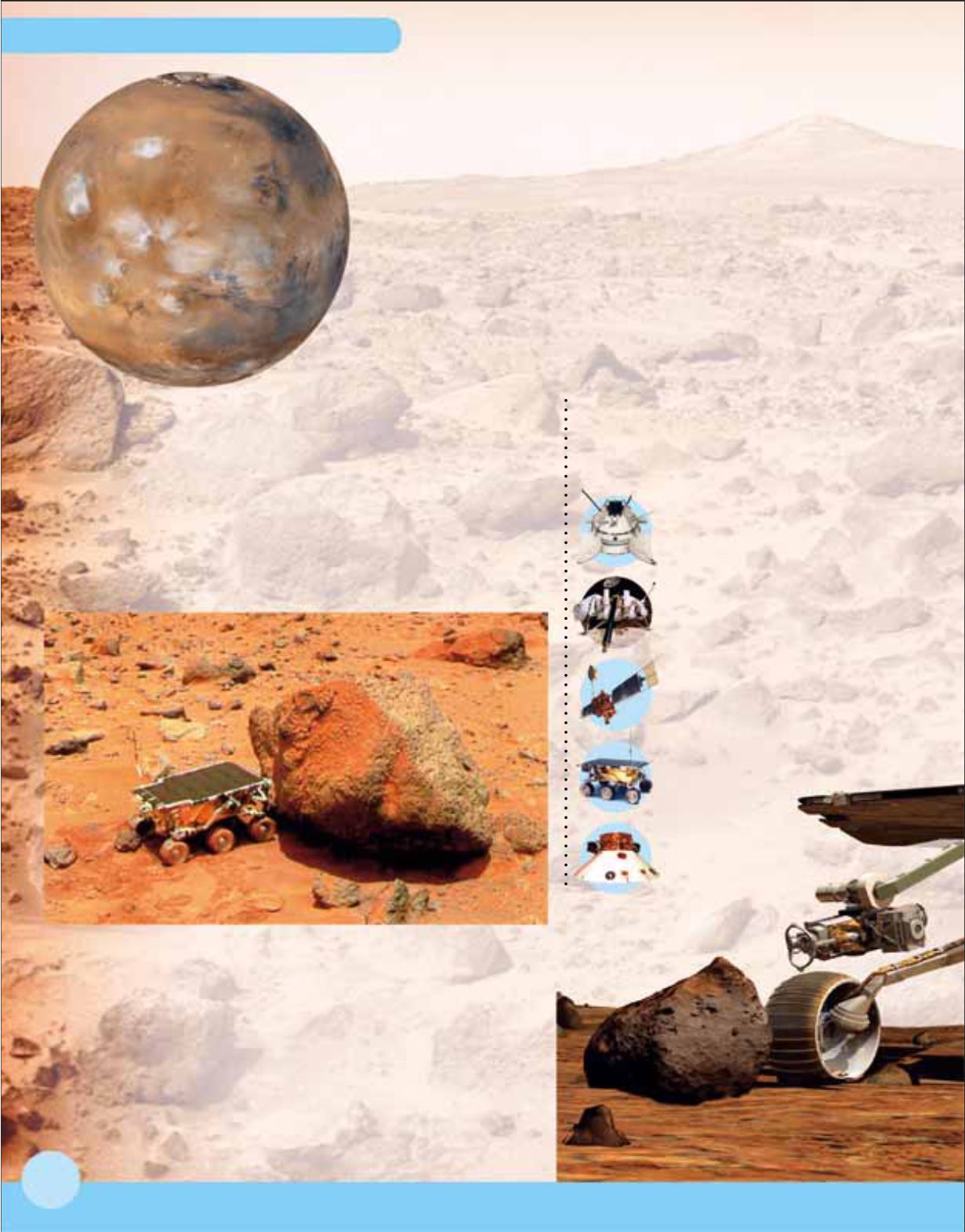
Spacecraft have flown past Mars,
orbited it, and landed on its surface.
One day, we may even build a base
on Mars. It may be cold, barren, and
dusty, but it’s full of possibilities.
Exploring Mars
Why study Mars?
At some point in its history, life may have
existed on Mars. Although it’s about half
the size of Earth, it has clouds, weather
patterns, and polar icecaps – once it even
had active volcanoes. Learning about Mars
may help us to understand our own planet.
How much did it cost to build, launch, and land the Mars rovers?
286
The universe
Looking at Mars
There have been a number of
missions to Mars.
In 1976
, two spacecraft, the
Viking
landers, tested for
signs of life.
In 1996
,
Mars Global Surveyor
was
launched. It completed its first
mission, but later lost contact.
In 1971
, two spacecraft,
Mars 2
and
Mars 3
, got to Mars, but their
landers failed to operate.
Seeing red
The landing craft that visited
Mars took lots of pictures of its
surface. These show a layer of
soil that is rich in iron, which
gives Mars its red colour – like
rusty iron on Earth.
In 1997
,
Pathfinder
touched
down, releasing a small rover
called
Sojourner
.
In 1999
, the
Mars Polar
Lander
proved unsuccessful.
On the barren surface of Mars, the
robotic
Sojourner
rover examines a
rock later nicknamed “Yogi”.


